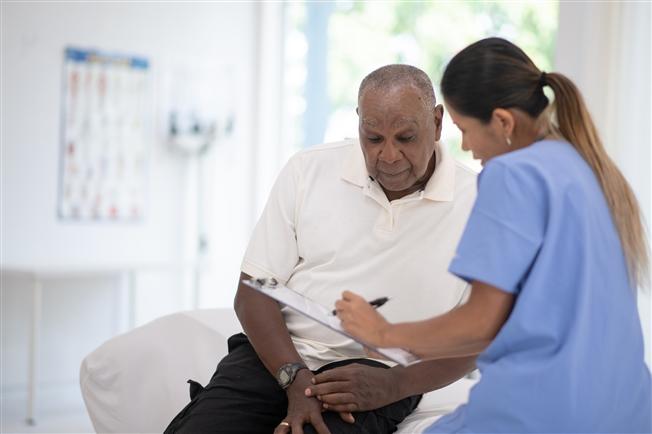Why colorectal cancer rates are higher among African Americans

Following the death of actor Chadwick Boseman last year, discussions surrounding colorectal cancer were at the forefront of many national conversations. Despite improved survival rates, diagnosis rates among young people continue to rise and are particularly high among people of color.
The American Cancer Society reports that African Americans are 20% more likely to develop colorectal cancer and 40% more likely to die from it.
“Colorectal cancer can be a deadly disease if it goes undetected and untreated, and it is taking a toll on communities of color especially,” says John H. Marks, MD, chief of colorectal surgery at Main Line Health. “While the overall rates of this disease may be on the decline, we cannot ignore the problem that there are certain groups of people who are being disproportionately impacted by this disease.”
Understanding colorectal risk among African American patients
Traditional risk factors for colorectal cancer include alcohol and tobacco use, obesity, a sedentary lifestyle, inflammatory bowel disease or a family history of colorectal cancer. While all of the factors accounting for the higher impact of colorectal cancer in the African American community aren’t fully known, recent research may shed some light on increased incidences of colorectal cancer.
According to a study published in the Journal of the National Cancer Institute, the right side of the colon ages faster in African American patients while the left side of the colon ages faster in white patients. While this aging is normal, it does impact cancer risk and right-sided aging may present a more serious risk than left-sided. Patients with right-sided colorectal cancer tend to have bigger, more advanced tumors than patients with left-sided colorectal cancer. More research is needed to explore these findings further, but the incidence of right-sided colorectal cancer in patients of color may help explain why the rate of cancer diagnosis is so high and often occurs in later stages among this group.
While there is certainly a genetic component to this effect, as there is for other ethnic groups such as Ashkenazi Jews, there are also socioeconomic factors contributing to increased risk of colorectal cancer for African American patients. For example, a disproportionate lack of insurance and access to high-quality health care create more of a barrier for non-white patients than white patients. These factors can prevent patients from seeking care at a hospital or the routine preventive care they need to screen for health issues. For patients who have access to affordable quality health care, they may be hesitant to seek it out due to mistrust in the health care system or discomfort with the intrusive nature of a colonoscopy screening.
Dr. Marks says all of these factors need to be taken into consideration when caring for African American patients and when reaching out to communities of color who are at a greater risk for colorectal cancer. “Education and creating an environment of trust with the medical community is an urgent priority, especially during this time of COVID. We need to take every opportunity to educate patients about the risk of colorectal cancer, how to recognize symptoms and why colonoscopy is so important, because this cancer is avoidable.”
How to manage your risk

These are all important steps to take to reduce your risk for colorectal cancer and improve your health, but they can’t replace the value of a colonoscopy. “Colonoscopies are still the gold standard for colorectal cancer prevention and early detection,” says Dr. Marks. He also urges patients to not let the COVID pandemic keep them from scheduling routine cancer screenings.
If you’re 45 or older, talk to your health care provider about scheduling a colonoscopy. If you’re younger than 45 but have a history of cancer in your family or are having symptoms like rectal bleeding, change in bowel habits, abdominal pain, or unexplained weight loss at any age, talk to your doctor about whether or not you should begin routine colonoscopy screenings earlier.
Main Line Health serves patients at hospitals and health centers throughout the western suburbs of Philadelphia. To schedule an appointment with a specialist at Main Line Health, call 1.866.CALL.MLH (225.5654).